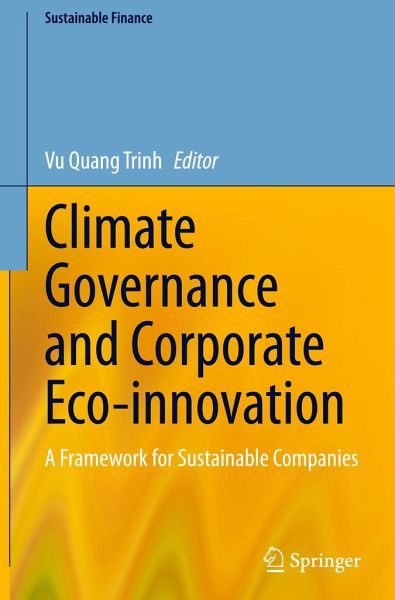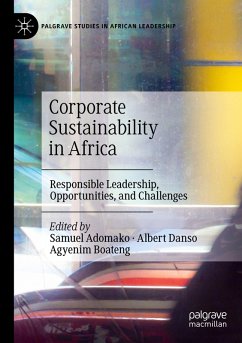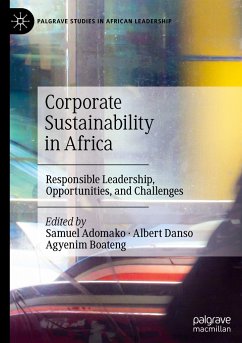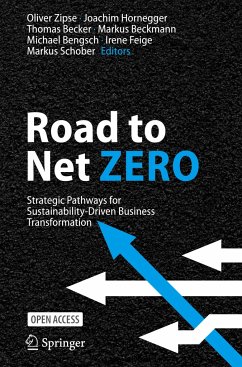
Climate Governance and Corporate Eco-innovation
A Framework for Sustainable Companies
Herausgegeben: Trinh, Vu Quang

PAYBACK Punkte
65 °P sammeln!
Corporations are increasingly dedicated to implementing more robust climate change practices in an era characterized by natural resource constraints, socio-environmental challenges, and mounting climate change pressures. This book provides a timely exploration of theoretical and empirical perspectives on global climate governance and corporate eco-innovation activities. It illustrates how corporations are actively addressing climate change by enhancing their climate governance systems and integrating eco-innovation into their operations, significantly impacting financial decision-making, polic...
Corporations are increasingly dedicated to implementing more robust climate change practices in an era characterized by natural resource constraints, socio-environmental challenges, and mounting climate change pressures. This book provides a timely exploration of theoretical and empirical perspectives on global climate governance and corporate eco-innovation activities. It illustrates how corporations are actively addressing climate change by enhancing their climate governance systems and integrating eco-innovation into their operations, significantly impacting financial decision-making, policies, performance, risk management, and other crucial indicators. In this context, eco-innovation represents a corporation's ability to reduce environmental costs and burdens for its customers. It plays a vital role in helping firms improve energy and environmental efficiency, mitigate energy consumption, reduce carbon emissions, and minimize ecological harm during and after production. Additionally, eco-innovation can create new market opportunities by enhancing existing environmental technologies. Furthermore, the shift from conventional corporate governance to a heightened focus on corporate climate governance mechanisms, such as the establishment of ecological committees, the implementation of cli-mate incentives for managers and executives, and the publication of sustainability or climate change reports, proves to be an effective strategy for motivating firms to become more dedicated to environmental protection and eco-innovation initiatives.














